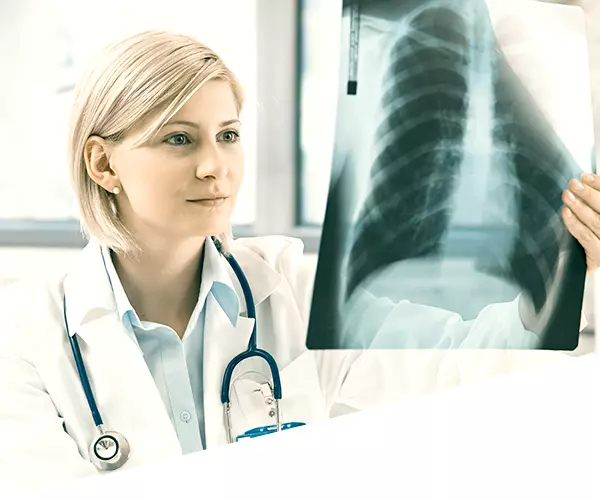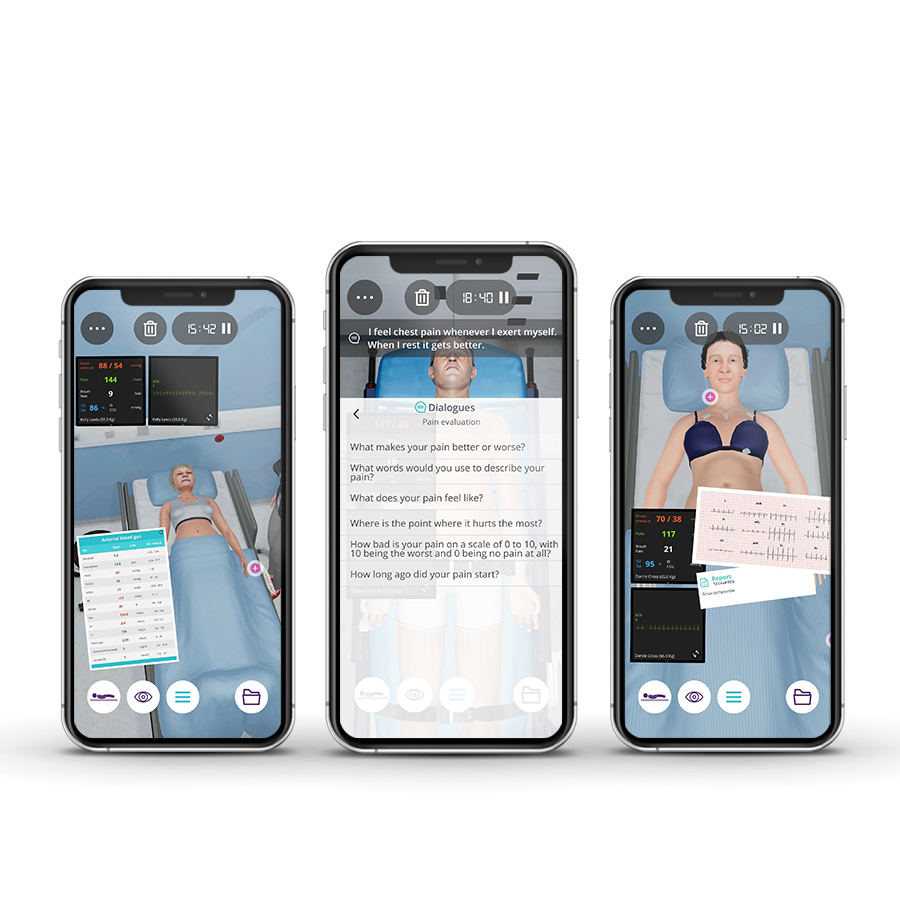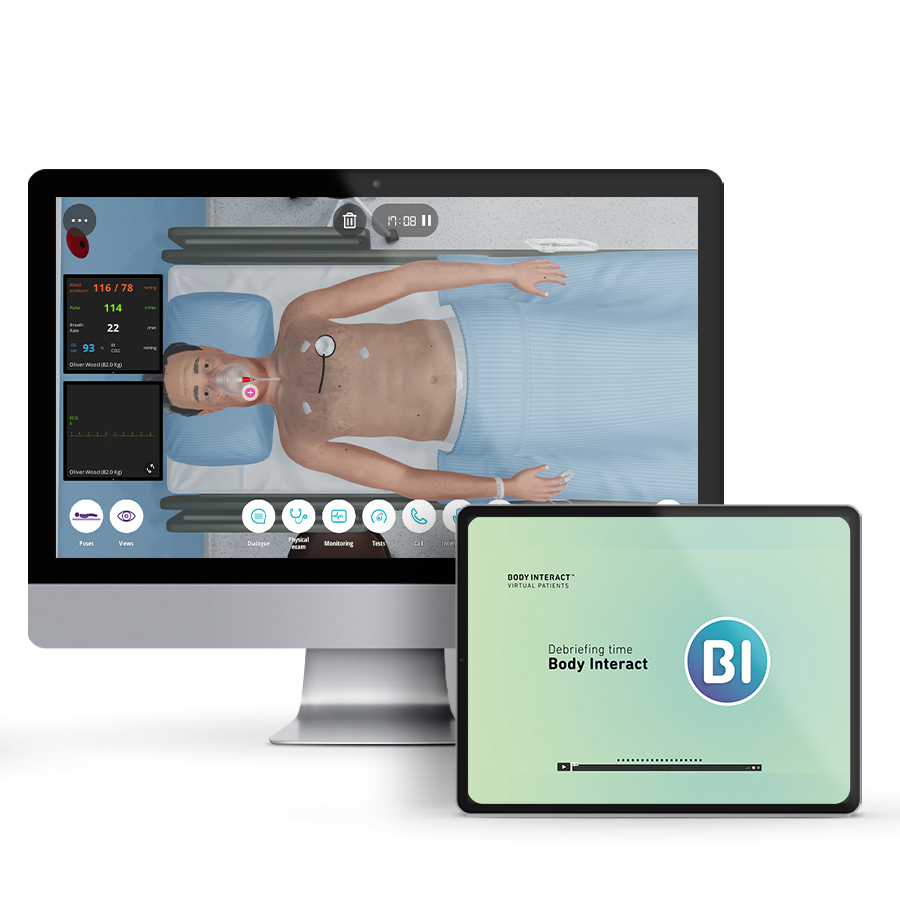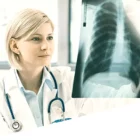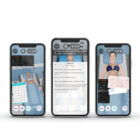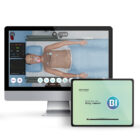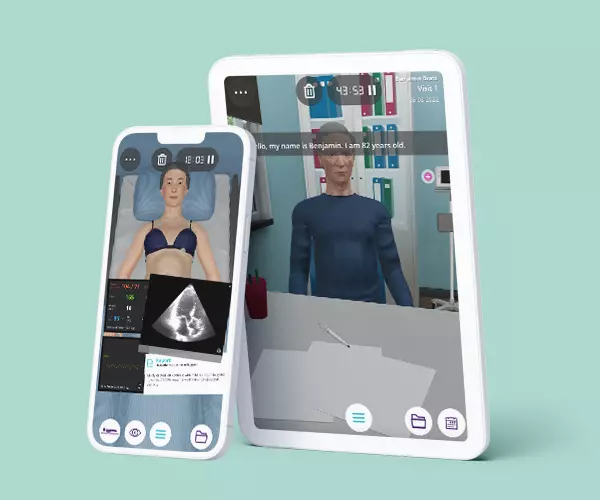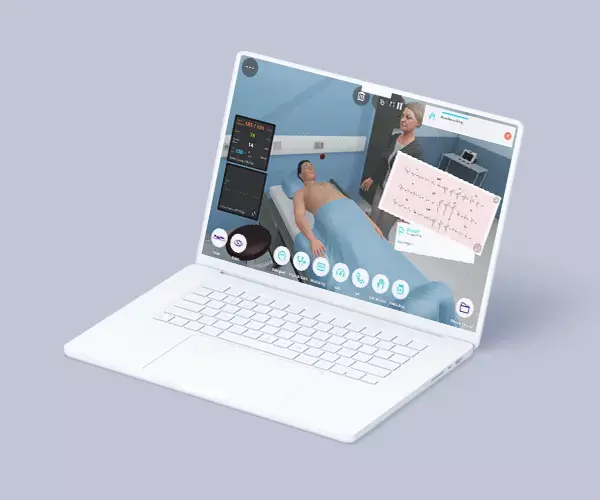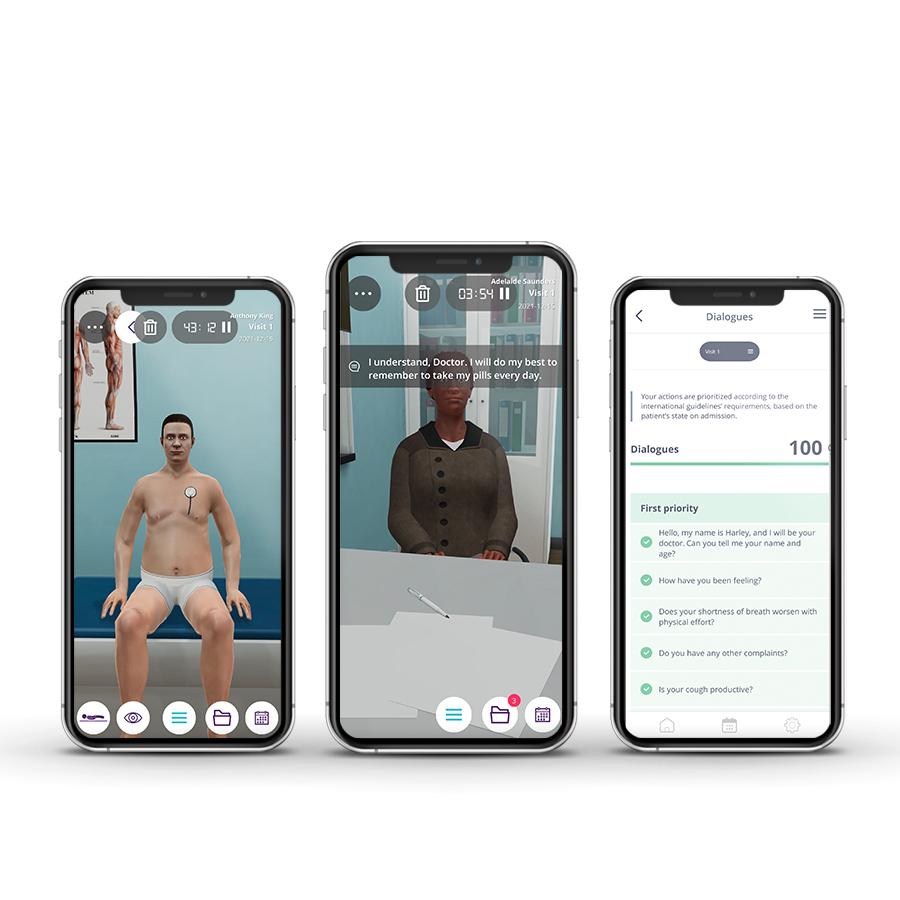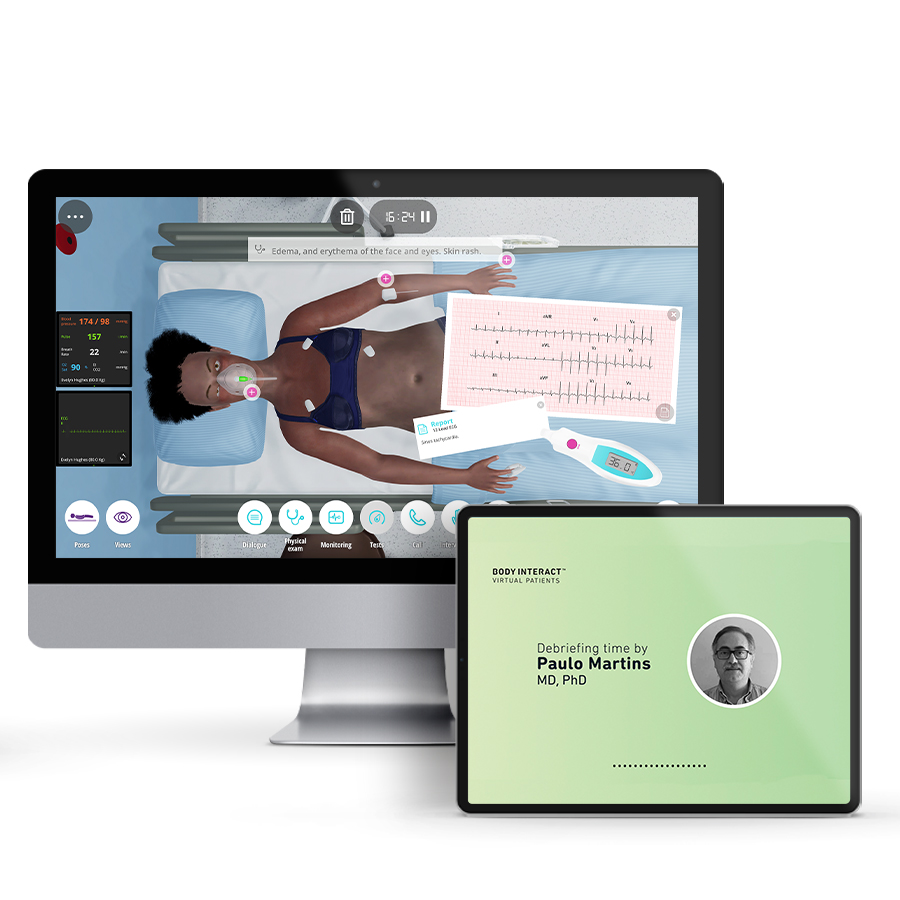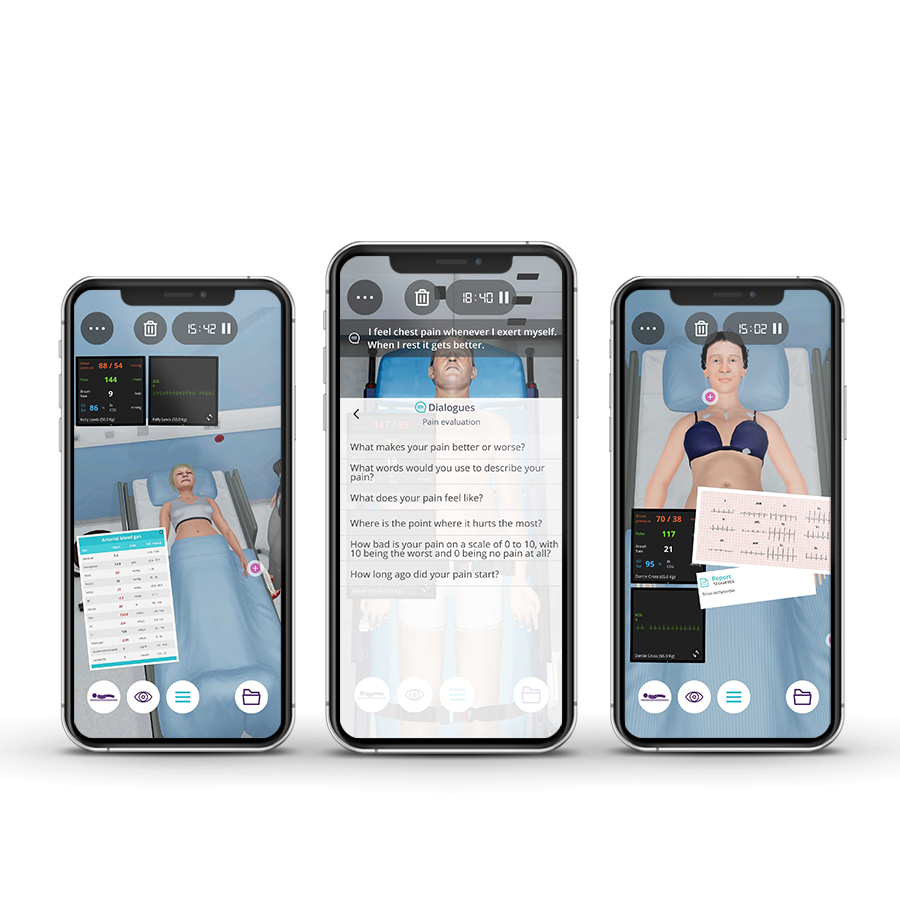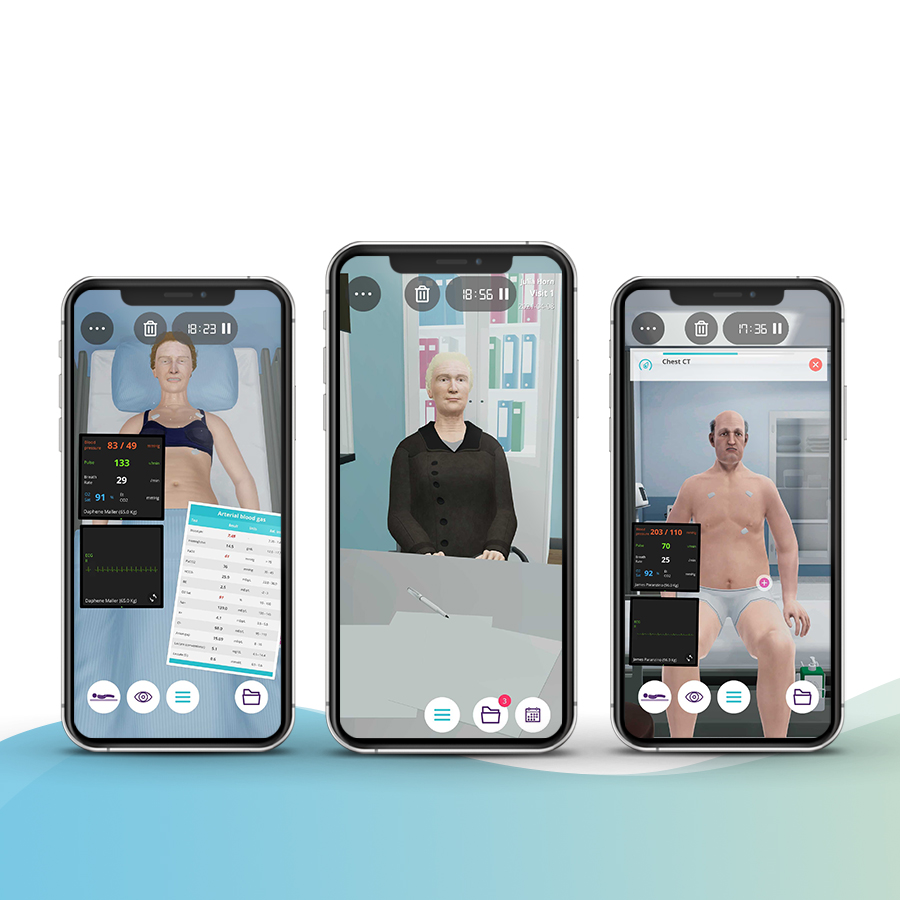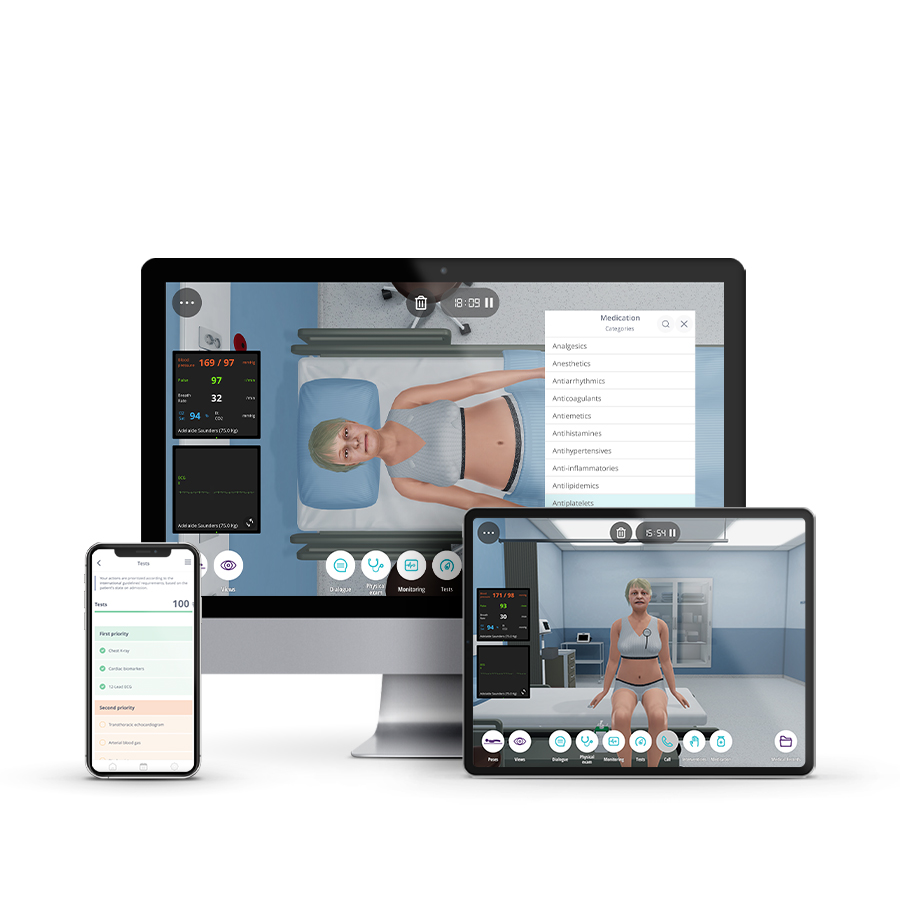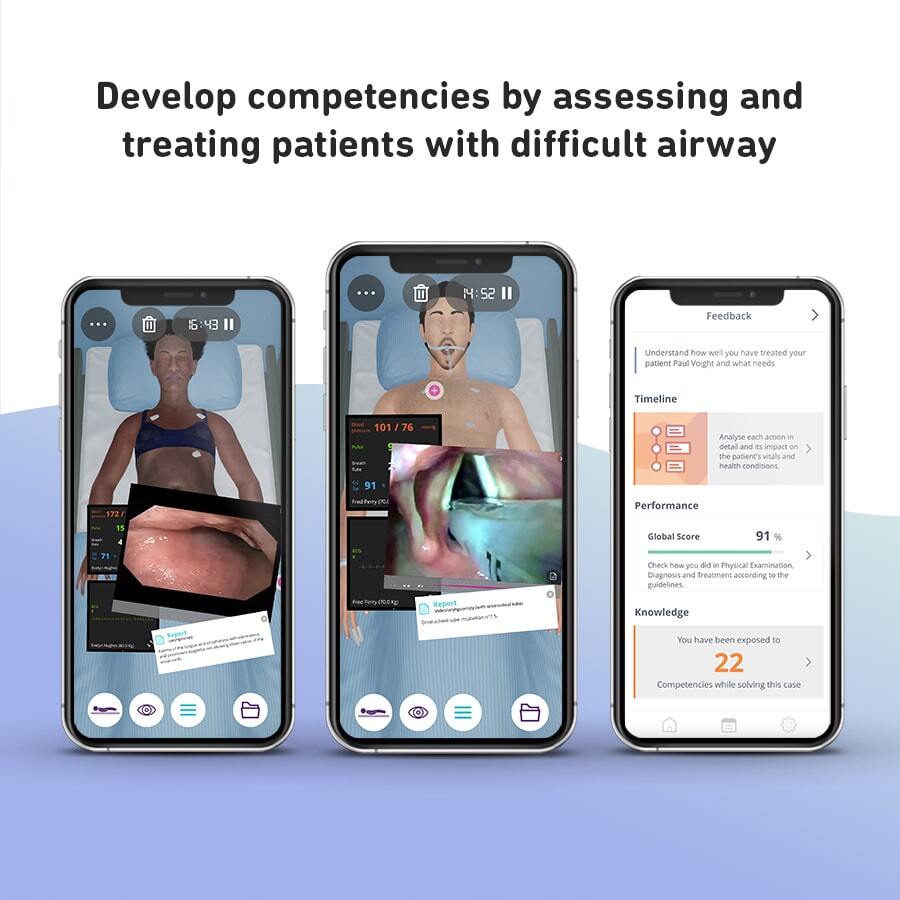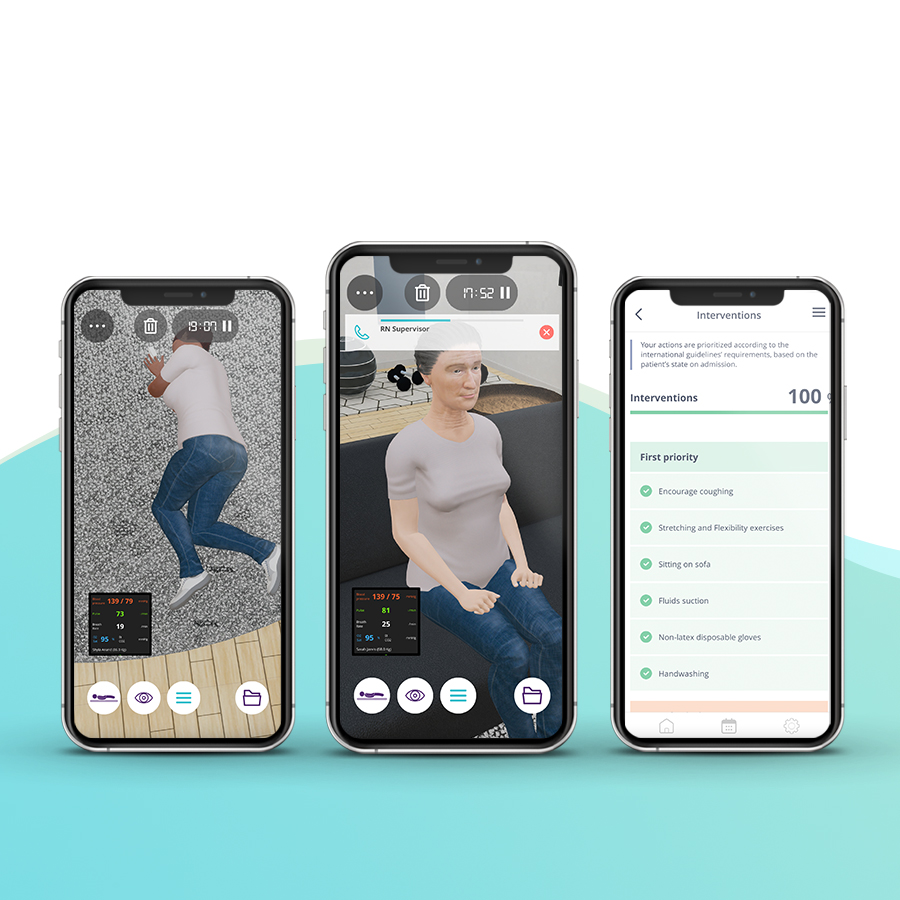Description
Course type: Online; Self-Paced
Specialty: Specialty: Internal Medicine / Emergency Medicine
Language: English, Portuguese
Resources: Debriefing Videos
Level: Intermediate / Advanced
Target: Medical Students
Modules: 5
Durations: 2 months
Time Effort: Up to 110 minutes per module
Certificate: Yes
Course Description
The combination of internal medicine and emergency medicine allows physicians to confidently address acute illness and injuries, either chronic, in the emergency room, ICU, or prehospital settings. Physicians holding these two areas of expertise have the unique opportunity to integrate the solid knowledge base and skill sets of both specialties into their daily practice.
Emergencies in Internal Medicine Course enhances learning from a series of clinical cases in different care settings and is a way to develop your clinical thinking and judgment. It includes five clinical scenarios of intermediate and advanced levels of complexity in the areas of Toxicology, Endocrinology, Trauma, Intensive medicine, and Cardiology.
Course Overview
- 5 Modules
• 5 virtual patient cases of an intermediate level of complexity - Average Time to practice (per module):
• Clinical Scenario: 20 minutes per attempt (3 attempts: 60 minutes)
• Final attempt (if applicable): 20 minutes
• Multiple Choice Question: 5 minutes
• Feedback Area: 10 minutes
• Learning Objectives and Scientific References: 5 minutes
• Debriefing Video: 10 minutes - Online, Self-paced
• You have up to 2 months to complete the 5 modules at your own pace. The course can be accessed through Body Interact at any time. - Certificate of Completion
• After completing the course, you will receive a Certificate of Completion that can be added to your CV or Resume.
Learning Objectives
• Identify drug intoxication
• Identify drug intoxication
• Identify initial diabetes ketoacidosis condition
• Identify principles of initial assessment of a severe trauma victim
• Identify acute coronary syndrome
• Diagnose oropharyngeal infection (location and origin)
• Recognize difficult airways and intubate using the video-laryngoscopy technique to protect the airway
• Recognize when to extubate safely, and to how to ensure airway permeability
• Manage and treat infection focus (surgical drainage and antibiotics
Clinical Competencies
Safety
• Universal safety measures procedures
• Promote patient safety
• Collect patients clinical information
• Establish drug dosing for common medications
Airway and Breathing
• Basic airway management
• Placement of oral airway
• Videolaryngoscopy intubation
• Respiratory rate and rhythm assessment and interpretation
• Oximetry interpretation
• Perform lung examination (percuss, fremitus, auscult and qualities of air sound, lobar locations)
• Ventilator management
• Managing and interpreting chest drainage tubes
• O2 administration
Circulation
• Assess and interpret pulse (rate, rhythm and volume) and blood pressure
• Interpret capillary refill time
• Detect heart murmurs and identify S1 (tricuspid, mitral) and S2 (pulmonary, aortic) heart sounds and detect S3, S4 gallops
• Catheter management
• Determinate patient’s blood type and manage its component
Disability
• Measure and interpret blood sugar values
• Perform the pupillary examination
Exposure
• Lesion qualities assessment (petechiae, urticaria, jaundice, vesicles, etc)
• Perform abdominal and pelvic examination (inspect, auscult, percuss and palp)
• Interpret imaging tests (Chest x-ray, Ultrasonography, Computed tomography and Magnetic resonance imaging, Electrocardiogram interpretation, Nuclear imaging techniques, Abdominal ultrasound)
• Interpret lab tests (Liver function, Renal function, Fluid/Electrolyte, Cardiac enzyme, Hematocrit, Arterial Blood Gas, coagulopathy rate,Lipid test, Blood culture, Urinalysis)
• Recognize the indications to perform gastric lavage
• Bladder catheterization (male and female)
Module 1 – Found unconscious
Context: Drug overdose can be accidental, due to ignorance, or intentional. Whatever the case, it is serious and immediate care is essential after identifying the symptoms.
Virtual Scenario: Kelly´s sister found her lying on the couch unconscious
Module 2 – Female patient with nausea, vomiting, and headache
Context: Physical examination is essential to detect typical data caused by a clinical condition. Initially, symptoms may be associated with the underlying pathology, however, as dehydration and hydro electrolytic changes become more pronounced, other symptoms may be associated, such as nausea, and vomiting.
Virtual Scenario: Over the past two days, Darcie has complained of headaches, vomiting, and nausea. Since she was confused, the family brought her to the hospital.
Module 3 – Fall from the 3rd floor
Context: Medical history and conducting a physical exam are fundamental to the diagnosis of disease. There are similar conditions to lead to abdominal pain. The specific cause of your attack will determine the course of treatment.
Virtual Scenario: Mr. Jones was working on the construction site when he fell from the 3rd floor. The patient is being brought in by the Emergency Prehospital Service.
Module 4 – Recent tooth abscess
Context: Tooth abscess occurs when a bacterial infection settles in the cavity between the gum and the bones of the face or neck. An infected tooth that does not receive proper treatment can form an abscess and cause severe complications.
Virtual Scenario: Mr. Wood had a recent tooth abscess and was prescribed antibiotics for 15 days. He developed difficulty in swallowing, odynophagia, dysphonia, extraoral swelling, and pain.
Module 5 – Waking up during the night with chest pain
Context: Chest pain is not something to be ignored. Chest pain can be related to several causes and can be related to heart or lung problems for example. Some of these conditions can be serious and life-threatening.
Virtual Scenario: Daniel woke up suddenly in the middle of the night with chest pain, and called for an ambulance.
Authors and Speakers
With a multidisciplinary group of international clinical reviewers, Body Interact ensures a high standard of accuracy, diversity, and impact of its course.
Paulo Martins
MD, PhD
Expert in Intensive Care
Faculty of Medicine, University of Coimbra, Portugal
Scientific References
- American College of Surgeons. ATLS Student Course Manual – Advanced Trauma Life Support for Doctors. 9th edition, 2012.
- Amsterdam EA, Wenger NK, Brindis RG, et al. 2014 AHA/ACC Guideline for the Management of Patients With Non–ST-Elevation. Acute Coronary Syndromes. Circulation. December 2014. 3.
- Baud F, Garnier, R. Toxicologie clinique. 6th ed. Lavoisier Medécin; 2017. 4.
- Bertolai R, Acocella A, Sacco R, Agostini T. Submandibular cellulitis (Ludwig’s angina) associated to a complex odontoma erupted into the oral cavity. Case report and literature review. Minerva Stomatol. 2007;56(11-12):639-647.
- Boffard K, editor. Manual of Definitive Surgical Trauma Care. 4th Edition. Taylor & Francis; 2016.
- Bridwell R, Gottlieb M, Koyfman A, Long B. Diagnosis and management of Ludwig’s angina: An evidence-based review. Am J Emerg Med. 2021;41:1-5.
- Candamourty R, Venkatachalam S, Babu MR, Kumar GS. Ludwig’s angina – An emergency: A case report with literature review. Journal of Natural Science, Biology and Medicine. 2012;3(2):206.
- Cicardi M, Suffritti C, Perego F, Caccia S. Novelties in the Diagnosis and Treatment of Angioedema. J Investig Allergol Clin Immunol. 2016;26(4):212-221.
- Conroy RM, Pyörälä K, Fitzgerald AP, et al. Estimation of ten-year risk of fatal cardiovascular disease in Europe: the SCORE project. European Heart Journal. 2003;24(11):987-1003.
- Coumoul X, Andujar P, Baeza-Squiban A, et al. Toxicologie. Dunod; 2017.
- Ibanez B, James S, Agewall S, et al. 2017 ESC Guidelines for the management of acute myocardial infarction in patients presenting with ST-segment elevation. European Heart Journal. 2017;00:1-66.
- Kasper D, Fauci A, Hauser S, Longo D, Jameson JL, Loscalzo J. Harrison’s Principles of Internal Medicine. 19th Ed. New York, NY: McGraw-Hill; 2015.
- Kovalev V. A Severe Case of Ludwig’s Angina with a Complicated Clinical Course. Cureus. 12(4).
- Olson K, Anderson I, Benowitz N, et al. Poisoning & Drug Overdose. 7th ed. Mc Graw-Hill Professional; 2018.
- Parker E, Mortimore G. Ludwig’s angina: a multidisciplinary concern. Br J Nurs. 2019;28(9):547-551.
- Trauma Evaluation And Management Program for Medical Students Overview of the Trauma Evaluation And Management (TEAM) Program for Medical Students [Internet]. [cited 2019 Jun 19]. Available from: http://regionsemstudentworkshops.pbworks.com/f/Trauma+Evaluation+and+Management+Booklet.pdf
- True B-L, Dreishbach R. Dreishbach’s Handbook of Poisoning: Prevention, Diagnosis and Treatment. 13th ed. CRC Press; 2001.
- Vallée M, Gaborit B, Meyer J, et al. Ludwig’s angina: A diagnostic and surgical priority. Int J Infect Dis. 2020;93:160-162.
- Van Olden GDJ, Meeuwis JD, Bolhuis HW, Boxma H, Goris RJA. Clinical impact of advanced trauma life support. Am J Emerg Med. 2004;22(7):522-525.
- Weng T-C, Yang Y-HK, Lin S-J, Tai S-H. A systematic review and meta-analysis on the therapeutic equivalence of statins. Journal of Clinical Pharmacy and Therapeutics. 2010;35(2):139-151.

